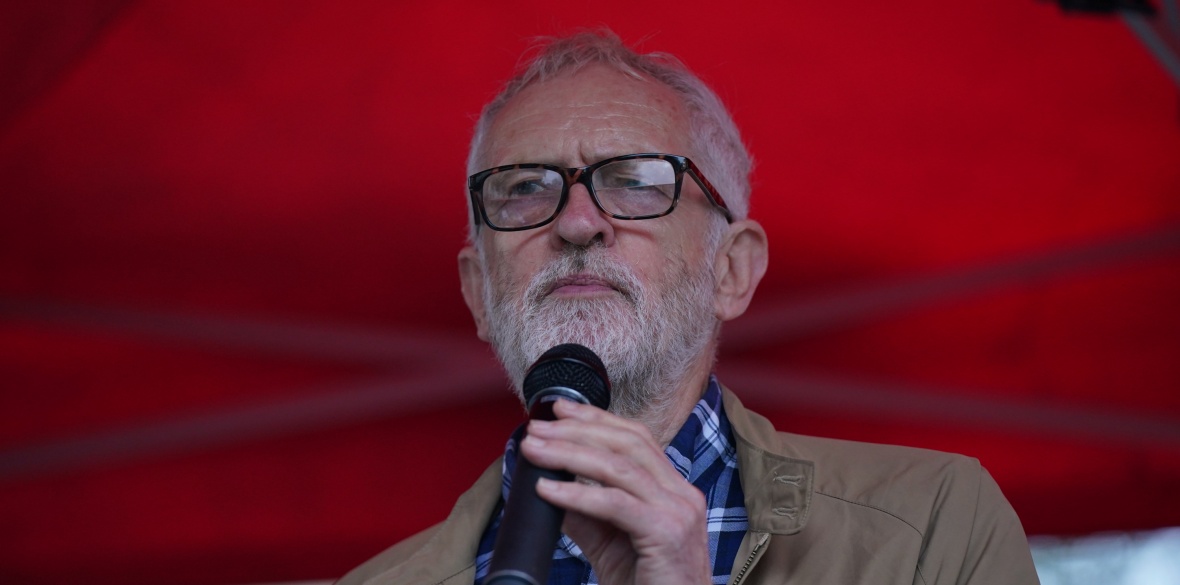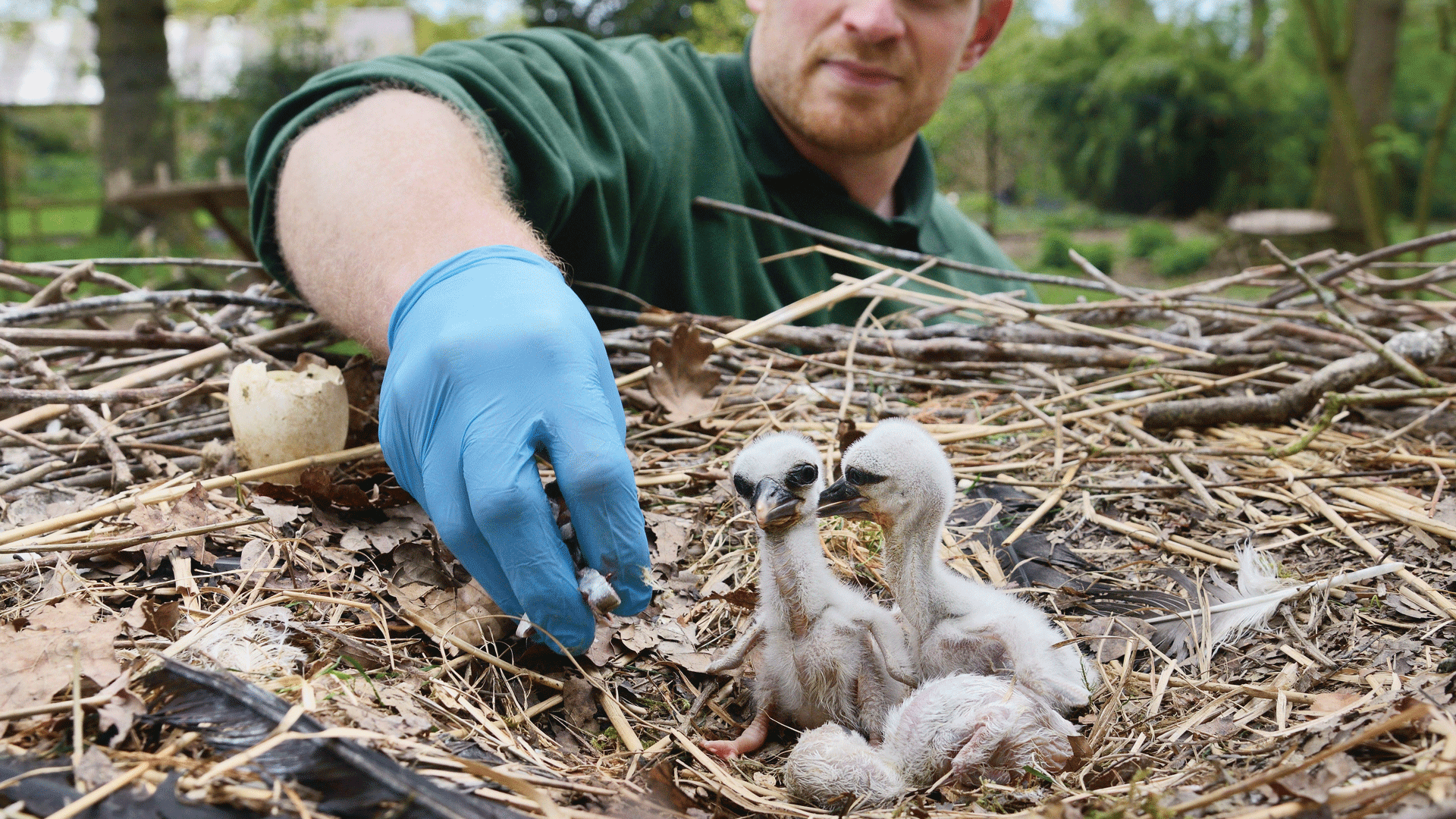UK
Editorial:Corbyn's run in Islington North is a stand for socialism - and democracy itself
MORNING STAR
FRIDAY, MAY 24, 2024

Jeremy Corbyn speaks during a protest organised by the Rail, Maritime and Transport union (RMT) opposite Downing Street, London, over the proposed closure of railway station ticket offices, August 31, 2023
JEREMY CORBYN’S long-awaited announcement that he will run for re-election in Islington North, which he has represented since 1983, puts heart into socialists everywhere.
It is an important stand for democracy, worthy of support even from those who are usually sceptical of the value of standing left-of-Labour candidates, and a chance to show that the electorate that knows him best rejects both his character assassination by ruling-class media and his excommunication from the party he has served most of his life.
The decision to block the last Labour leader from standing again on a Labour ticket was an arrogant exercise of unaccountable power by the clique around Sir Keir Starmer, whose Labour credentials are thin by comparison.
Starmer likes to talk of “my Labour Party,” but was first elected as a Labour MP in 2015, when Corbyn had already been one for 32 years. In fact rules were tweaked to enable his selection as a Labour candidate that year, because he had not been a member of the party long enough to qualify.
His decision to join, therefore, was not because of any connection to the hundreds of thousands of ordinary Labour people — the activists, canvassers, councillors who work so hard for the party — but because on leaving the Crown Prosecution Office he fancied a political career.
Multiple times since he has indicated his contempt for those ordinary Labour people. And the ban on Corbyn standing again reeks of that contempt.
It is contemptuous of the residents of Islington North, who have repeatedly elected him, most recently with a thumping majority of 26,188.
It is contemptuous of the constituency Labour Party, which has expressed unanimous support for Corbyn’s right to stand as their candidate again and have been cut out of the selection process entirely, and of the wider Labour membership, whose rights even to discuss Corbyn’s exclusion from the parliamentary party have been suppressed.
And it is contemptuous of the labour movement, with a big majority of affiliated unions expressing their strong opposition to the decision to block him, and several involved in negotiations aimed at restoring the Labour whip, which foundered on Starmer’s dishonesty.
That last point is crucial, because pressure will now be brought to bear by Labour to park any reservations about its conduct and offer blanket support in the name of sweeping away the Conservatives.
Unions whose concerns have been brusquely dismissed need not feel any obligation to campaign for the official Labour candidate against Corbyn.
Two once-affiliated unions, the transport sector’s RMT and the food sector’s BFAWU, have voiced support for Corbyn already.
Those which remain affiliated are understandably unlikely to do so, but that does not mean they have to lift a finger to back anyone against him.
There is no risk of letting the Tories in in Islington North. This will be a Corbyn versus token-Labour contest. Given the Labour Party nationally echoes Tory policies on public spending, crackdowns on protest rights and effective support for Israel’s brutal war in Gaza, the value of having a voice for peace and socialism who has never been afraid to challenge ministers, Tory or Labour, on their actions in Parliament is obvious.
It matters that we send the bullies and political fixers who dominate Westminster politics a message that they will not always get away with it.
It matters too that re-electing Corbyn, a nationally recognised figure, sends a national message that the socialist resurgence his 2015-20 Labour leadership represented has not been snuffed out.
Majorities consistently tell the pollsters they want higher taxes on the rich, more public spending, rail, mail, water and energy back in public hands.
A deeply undemocratic political system and a deeply dishonest and manipulative media are adept at obscuring that reality. Re-electing Jeremy Corbyn will make it that bit harder for them to do so.
UK
Jeremy Corbyn’s Islington North constituents back his re-election campaign

Jeremy Corbyn’s constituents have expressed their “love” for their MP after he announced he would stand as an Independent candidate in the General Election.
Speaking close to his home in Islington North, most voters spoken to by the PA news agency said they would support the former Labour leader regardless of the party he represents.
Mr Corbyn has been suspended by Labour since 2020 after he refused to fully accept the Equality and Human Rights Commission’s findings that the party broke equality law when he was in charge and said antisemitism had been “dramatically overstated for political reasons”.
Despite this, constituents said they “love” the way he represents the views of his constituency, including towards Palestine and Gaza, and would stand by him.
Yusra Ali, 31, an NHS administrator from Islington said she voted for Mr Corbyn in the last election, and plans to vote for him as an Independent candidate.
“I think he’s a genuine person. He stands for minorities like myself. He stands for the working class people – for people like myself who live in council houses. So I think he represents me and my family.
“I always see him standing with people of colour”, she added.
She said her message to Mr Corbyn would be: “Just to stay the way you are, we love you, you are really humble, down to earth. You support my people and my background and I just wish you all the best.”
Halimo Abdulle, 38, a stay-at-home mother who lives in Islington also spoke of her “love” for Mr Corbyn.
“You don’t feel he’s an MP or a big man, he says ‘hello’, he can talk to you nicely. I just love him,” she said.
Ms Abdulle said she voted for Mr Corbyn in the last election and plans to vote for him again, describing the news he is running as an Independent as “amazing”.
“I think it’s amazing and I actually think he can win,” she said.
“Every time we go to his office he treats us nice, he comes to every event we have. He actually keeps the community together.”
She said her message for Mr Corbyn is: “I hope you win for July.”
“Don’t stop. We really need you,” echoed Sam Borg from Islington.
Jeremy Corbyn’s days of influencing Labour are over, says Sir Keir Starmer

Sir Keir Starmer has said Jeremy Corbyn’s days of influencing Labour are “over” after the former leader was expelled from the party as he announced he is standing as an Independent candidate in the General Election
.
The Labour leader, who once served in Mr Corbyn’s shadow cabinet, hit back at his predecessor after being accused of undermining democracy through the selection process for the Islington North constituency.
Veteran MP Mr Corbyn was blocked from standing for his own party but will seek re-election in the seat he has represented for 40 years.
Asked for his response to suggestions that he was “cherry-picking” candidates including Praful Nargund, who will stand for Labour in Islington North, Sir Keir told broadcasters: “Jeremy Corbyn’s days of influencing Labour Party policy are well and truly over. Jeremy Corbyn’s decision is his decision. What I’m intent on doing is putting first class Labour candidates in Islington North, which we have now done.”
Sir Keir defended his decision to ban Mr Corbyn from standing for Labour as part of his efforts to “tear antisemitism out of our party by the roots”.
The MP has been sitting as an Independent since 2020 after refusing to fully accept the Equality and Human Rights Commission’s findings that the party broke equality law when he was in charge.
He said allegations of antisemitism had been “dramatically overstated for political reasons”.
Shortly after he announced his intention to stand, a source told the PA news agency that he had been informed he is no longer a Labour Party member.
Mr Corbyn vowed to be “an independent voice for equality, democracy and peace”.
His candidacy will cause a headache for the Labour leader just as he is kicking off his campaign to replace Rishi Sunak in Number 10.
Campaign group Momentum, which strongly aligns itself with Mr Corbyn’s politics, accused Sir Keir of treating the people of Islington “with contempt” by blocking the former Labour leader and “driving out the socialist politics he represented, in favour of elite interests”.






